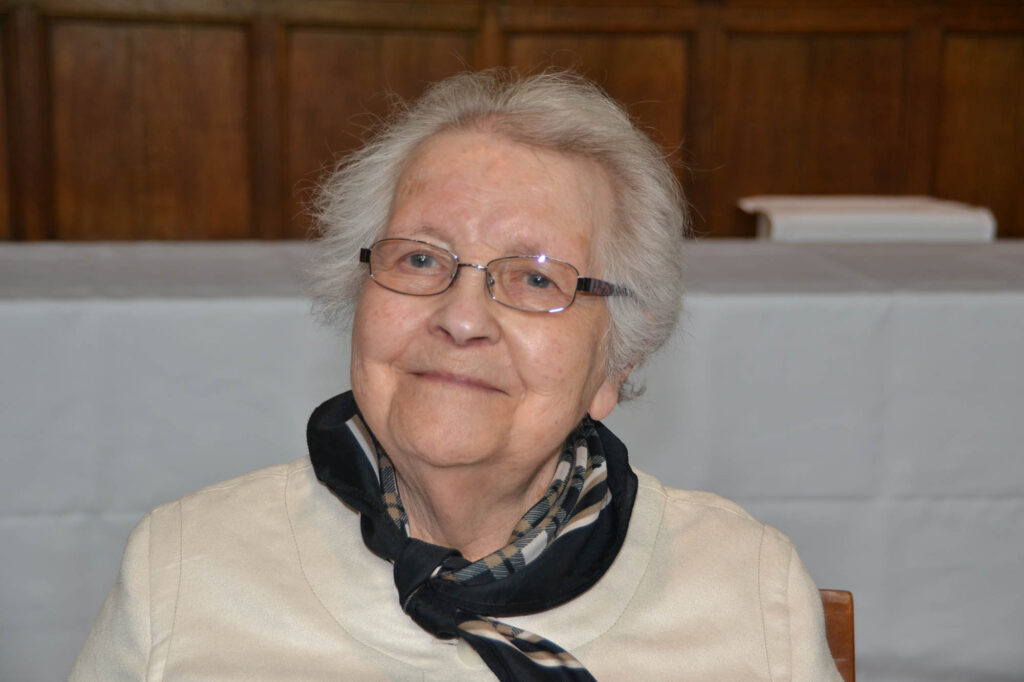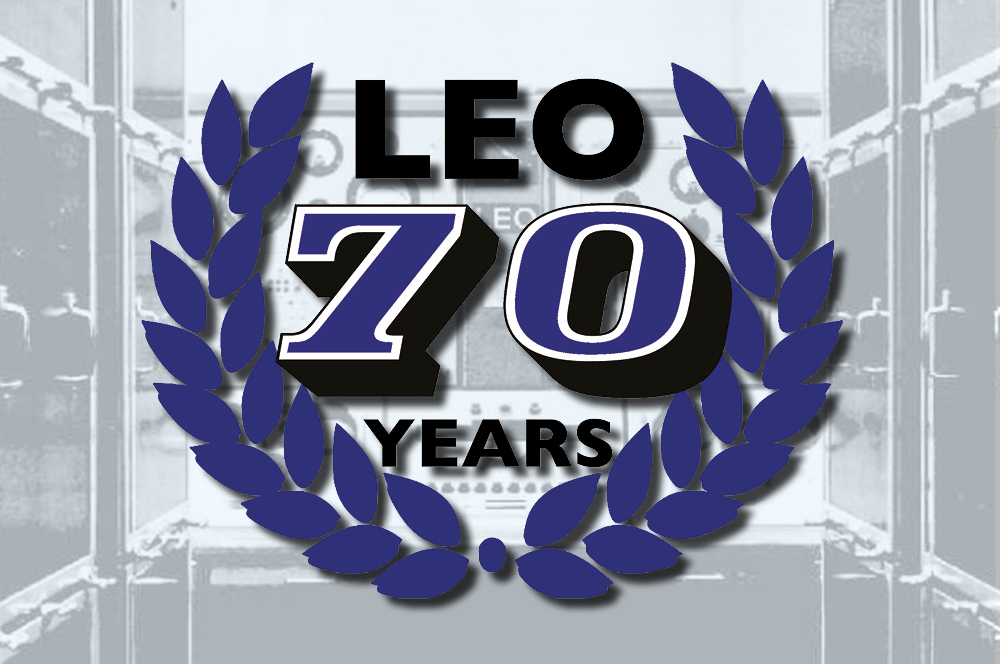ICL AllStars Issues 72 and 73 have been published and there are links on the All Stars Page and here.
ICL AllStars (Australia) Issues 72 and 73 Read More »
ICL AllStars Issues 72 and 73 have been published and there are links on the All Stars Page and here.
ICL AllStars (Australia) Issues 72 and 73 Read More »

Order your copies here LEOremembered@leo-computers.org.uk .
A recording of the launch event can be viewed here
Launch of the massively revised LEO Remembered on 28 September Read More »
The LEO Computers Society and partners Centre for Computing History are delighted to announce that their film about LEO, the world’s first business computer has won the Association of British Science Writers (ABSW) Video of the Year Award 2022.
LEO, otherwise known as the Lyons Electronic Office, was a pioneering British computer developed in the early 1950s by J. Lyons & Co., famous for tea, cakes and the teashops that were once part of the fabric of British life.
The film was commissioned as part of a lottery-funded project ‘Swiss Rolls, Tea & the Electronic Office’, which is preserving, cataloguing and making accessible the heritage of this remarkable machine so as to raise awareness of this relatively unknown British story.
Judges commented that the film was “an absorbing and textured piece with excellent and evocative archive footage”. It aims to introduce a whole new generation, from secondary school age upwards, to the remarkable story of the birth of a technology that, today, we take for granted.
Lisa McGerty, manager of the project said: “We’re honoured to have had the LEO film we commissioned – and which was expertly made by Richard Hollingham and Jamie Partridge of Boffin Media – recognised as the Association of British Science Writers’ Video of the Year. LEO’s story really is remarkable and it is a privilege for us to work with some of the surviving pioneers on this project, as well established film producers like Boffin. The first LEO computer was an astounding feat not just of engineering but also of vision by a company that had the foresight to recognise just how computers could revolutionise business at a time when computers didn’t really exist. Everyone should know about it.”
The film is freely available to watch at https://www.youtube.com/watch?v=Rzu68nRVwtE. It will be signposted to schools and colleges as part of The Centre for Computing History’s learning programme.
Notes
1. The film has been created by Boffin Media, an award-winning production company specialising in science and space. The Producer is Richard Hollingham and the Director is Jamie Partridge.
2. The LEO Computers Society is committed to promoting and protecting LEO’s history. Membership of the Society is open to all ex-employees of LEO Computers and its succeeding companies, anyone who worked with a LEO computer and anyone with a specific interest in the history of LEO Computers. Among its members are pioneers from the very early days of computing and membership is currently free of charge. Visit www.leo-computers.org.uk. Follow @leocomputers51.
3. Established in 2006, the Centre for Computing History is a charitable heritage organisation with a strong focus on learning. Since opening in Cambridge in August 2013, the Centre has helped people understand how tech has shaped the modern world and revolutionised the way we live, work and play through interactive displays and exhibitions, our schools programme, learning events and workshops, and an astonishing collection of computers old and new. Visit www.computinghistory.org.uk. Follow @computermuseum
4. Using money raised by the National Lottery, The National Lottery Heritage Fund inspires, leads and resources the UK’s heritage to create positive and lasting change for people and communities, now and in the future. www.heritagefund.org.uk. Since The National Lottery began in 1994, National Lottery players have raised over £43 billion for projects and more than 635,000 grants have been awarded across the UK. Follow @HeritageFundUK on Twitter, Facebook and Instagram and use #NationalLotteryHeritageFund
For further information on the museum, the Society, the LEO project or for images, please contact: Lisa McGerty (lisa@computinghistory.org.uk, 01223 214446 / 07825 794791) or Peter Byford (peter.byford@leo-computers.org.uk, 07944 038489).
We won Video of the year Read More »
Jason Fitzpatrick the CEO of the CCH gave LEO Computer Society members a virtual tour of the exhibits at the Museum on 27th April. The meeting was held on Zoom and recorded for those who wanted to attend but who were not able.
The recording is now available on this Website and can be viewed by following the link above. In addition an updated version of LEOPEDIA as at 30th April has been also uploaded to the Website
The Zoom Video can be viewed by following This Link and the updated LEOPEDIA Here
Zoom Recording of a tour of the Centre for Computing History now available Read More »
It is with great regret that we have to report that Mary Coombs, one of the LEO pioneers passed away on 28thFebruary 2022 at Stoke Mandeville Hospital, at the age of 93. Mary was the World’s first female business computer programmer joining the LEO team in 1952. We will let members know when the funeral is arranged. Mary was a good friend of the society and will be sadly missed. You can see Mary’s obituary on the CCH Website Here. Other published Obituaries include The Times, Computer Weekly, Computing, BCS, The Register, The News Trace, The Guardian , The Daily Telegraph, The ACM, Wikipedia, Bucks Free Press, Elective College and Radio 4’s Last Word on Friday (18th March) at 4p.m. , repeated on Sunday (20th March) at 8.30 p.m. – and available as a podcast thereafter -Listen at: https://www.bbc.co.uk/programmes/b006qpmv
There is also a recording of a recent Zoom meeting held to remember Mary –Zoom Recording and copy of the presentation deck used by Hilary Caminer Presentation
Mary appeared in our/CCH recent film about LEO remembering the early days of LEO (and if you haven’t seen it or want to watch it again go here )and there was a short BBC Witness History feature made about her- available for viewing at https://www.bbc.co.uk/programmes/p07w35t and her school, Putney High School also celebrated her at: https://www.youtube.com/watch?v=oHiCMfHydlo
For those interested in Mary’s life you can read a transcript of her Oral History at the British Library here.
Picture of Mary below. Copyright Mike Hally/LEO Computers Society

Mary Coombs (Updated 26 March with additional links) Read More »
Lyons Electronic Office: The Story of the World’s First Business Computer
To mark the 70th anniversary of LEO, the world’s first business computer, the LEO Computers Society and the Centre for Computing History (CCH) are launching a new specially commissioned short film. Funded by the National Lottery Heritage Fund as part of efforts to preserve and promote the history of this remarkable British invention, the film will be released on the 30th November – the day in 1951 that LEO ran its first program. The film will introduce a whole new generation, from secondary school age upwards, to the remarkable story of the birth of computing technology that, today, we take for granted.
The film will premiere on YouTube at 7pm on 30th November 2021 at https://youtu.be/Rzu68nRVwtE.
LEO: New film celebrates the 70th anniversary of the world’s first business computer Read More »
We’re sharing some business computing history over the next week as we lead up to the 70th anniversary of LEO completing its first program. Come & learn more at our LEO Weekend on 4th – 5th Dec, and see our special exhibition & film screening:

This ‘American Tour’ report kickstarted the world of business computing. Lyons visited the USA in 1947 to learn about computers, from ENIAC to IBM. They weren’t impressed – but found out about EDSAC here in Blighty, then built their own machine
This ‘American Tour’ report kickstarted the world of business computing. Lyons visited the USA in 1947 to learn about computers, from ENIAC to IBM. They weren’t impressed – but found out about EDSAC here in Blighty, then built their own machine!
/
http://www.computinghistory.org.uk/det/63012/63012-Section-D-American-Tour-Report-May-and-June-1947/

Originally tweeted by Computing History (@computermuseum) on 24 November 2021.
Lyons visit to the USA 1947 Read More »
There was another Zoom on Monday 24 January 2022 at 15:30 GMT.
The topic was “Inside the LEO archive” and was led by Luke Thorne, our Archivist at the Centre for Computing History at Cambridge. A recording is available at https://leo-computers.org.uk/Videos/Clipped_LEO_Archive.mp4
.
REUNION and LEO Exhibition: Sunday, 10th April 2022
From midday at the Victory Services Club, Marble Arch, London W2 2HF. As usual this will be an opportunity to meet old friends and colleagues and others with an interest in early computing. There will be refreshments and exhibitions of LEO related materials – as well as the usual raffle! Details to follow in the new year.
Tickets (to include a light lunch) cost £27 if bought before 31st January 2022 (£30 thereafter.)
To download a form to send with your application and with payment details click here
If you have any queries about this event or wish to book tickets, please email reunion@leo-computers.org.uk
Dates for your diary. Events for 2022. Follow this link for further information Read More »
September 1951 – At J. Lyons & Co on Wednesday, 5th September 1951 the Bakery Valuations programme was run to completion on real data as an experiment to test the hardware. As noted in Ernest Lenaerts notebook for that date it ran from 3:50 to 5:35 without a fault and was the longest run of any programme at that time.
LEO MOMENTS IN HISTORY Read More »